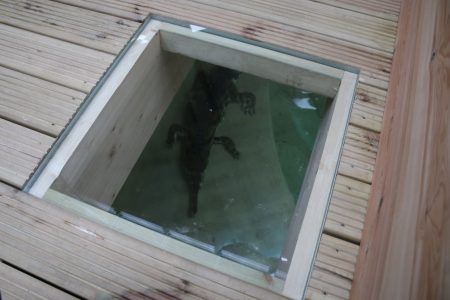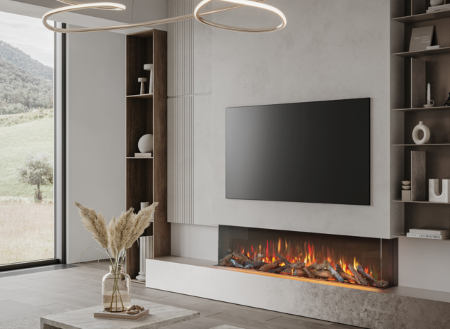VISITORS to the UK’s only crocodile zoo can walk all over one of the most dangerous creatures in the world thanks to some high performance anti-reflective safety glass, supplied by specialist manufacturer Romag.
Two sections of 30mm thickness Romag toughened laminated low iron glass has been specified to provide a transparent safety floor for a new bridge spanning a Tomistoma crocodile enclosure at Crocodiles of the World in Brize Norton, Oxfordshire.
The installation has been designed to provide a more ‘up-close and personal’ visitor experience at the zoo, which is home to the largest collection of crocodiles in Europe.
These include a group of 34 Nile crocodiles, saltwater crocodiles, which can grow up to six metres in length, as well as the Siamese and West African dwarf crocodiles. There are also caimans, snakes and lizards on show at the zoo.
Visitors crossing the bridge will be able to look through toughened glass that maintains its clarity while being protected by a structure strong enough to withstand the weight of several people at one time.
The floor was designed specifically for the enclosure to combine anti-reflective properties with maximum strength together with high levels of safety and security.
Paul Cruddace, a director at Romag, said: “This is an interesting commercial application, reflecting our ability to deliver innovative technical solutions that also provide long-term high performance and added safety benefits.
“Our new glass floor will undoubtedly contribute significantly to an unforgettable visitor experience at the zoo.”
Featuring low iron float glass, Romag products incorporate an advanced magnetron sputter coating, which is then strengthened and toughened using advanced thermal treatment processes. This creates a tough surface with optical properties that allow light transmission of up to 97% and reflection of less than 1%. This compares to normal architectural float glass that typically has a light transmission of 90% and a reflection of eight per cent.






